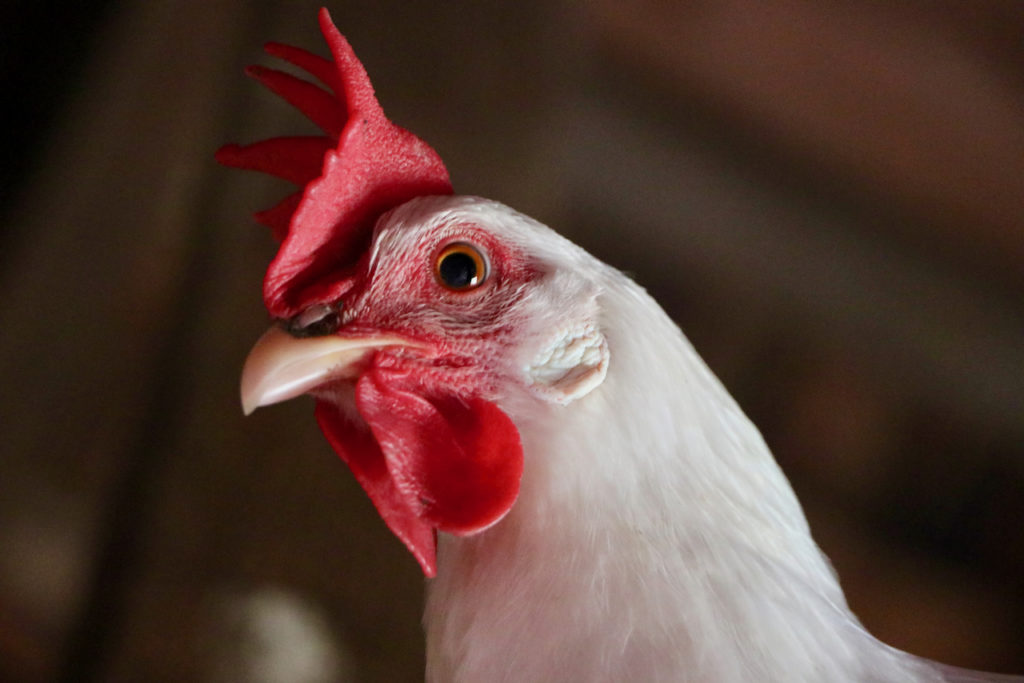
VIRGINIA BEACH — Why did the chicken cross the road?
To rule the world, of course.
There are some 20 billion chickens in the world, plus or minus a few. This dwarfs any other bird species. Next in line is an African finch at a mere 2 billion.
The chicken is on every continent and every country in the world except Antarctica. It started in Asia, according to Smithsonian Magazine, and has since travelled on so many caravans, sea voyages and expeditions as to be uncountable. Even NASA has researched the feasibility of taking them in space. Some would say we are utterly dependent on the chicken for its meat and eggs.
It was the best of times; it was the worst of times – for chickens, that is. As with much of what I write, there are different paths to take with our fowl friends. The poor chickens in large commercial houses are in an abysmal condition. The debate goes on about the health and well being of the chickens cramped in those awful houses. Are they even good for us to eat?
I think you know where I stand, and my connections in the chicken underground say they are plotting a revolution.
Chickens raised in a pasture or free range operation are, by any measure, healthier. They live longer and produce a healthier egg. And hens in this environment can be seen lounging under the houses discussing their favorite rooster. Such eggs generally have less cholesterol and fat, according to testing by Mother Earth News.
And one doesn’t need to give antibiotics like candy to pasture-raised chickens. The antibiotic resistance to all manner of diseases is causing great alarm among health care experts.
An additional benefit to the grower is the reduction of how much feed you have to give them. I know one operation which does not feed them at all due to all food sources already abundant on their farm.
As a traveling, self-renewing food source, they are unrivaled. The egg contains all nutrients we need to survive when the birds laying them are raised properly. It can make a living almost anywhere on almost any piece of land.
The caveat, again, is that the best conditions produce the most health benefits.
There is visceral response to seeing your first really healthy egg cracked open with its firm texture and almost orange yolk. I have done this for people a few times at markets.
I purchased eggs at 69 cents per dozen from the store and opened one of mine and one of theirs at the same time. They gasped, they wept and they cheered. Well, I am kidding about that last part, but they did take note and buy my eggs.
My pasture also noticed. Everywhere the rolling houses went the grass was greener, more drought tolerant and grew back quicker. For this to work, you must move the chicken houses to get the pasture benefits. Its a commitment. Otherwise, you have too much manure in one place, over fertilizing that spot and creating a run off potential.
And the best results come when you move them in following cattle.
You wait a set number of days. They scratch in the cow pies, light tillage, which incorporates the cow manure better. They eat the now developed grubs, which are juicy, high protein snacks. In fact, it is a delicacy for the chicken. They will fight and run off, grub in beak, to eat in peace. This drastically reduces the population of cow parasites, as well. Following nature’s plan always has benefits.
Now for my political suggestion. Let us have city chickens.
We are increasingly in the minority as a city which does not allow backyard hens. I have yet to understand the argument against it. In fact, there have been times where the government has urged citizens as an act of patriotic duty to keep chickens, such as in times of war and food shortages.
Consider the dog. Dogs bark. Dogs bite. Their poop is toxic. I love dogs, too, but what they lay has to be cleaned up. Chickens cluck, scratch, eat the bugs and make your grass green. And what they lay is a super food of the highest order.
Again, there’s always a caveat. This must be well done with a minimum amount of yard per bird and, for best results, a moveable house. If the chicken house is a permanent enclosure, it must be well kept, but then you lose some benefits. Maybe a license and an annual inspection could be enacted. Or perhaps training for animal control and let them inspect complaints.
I say God bless the little chicken. Civilization might just collapse without them.
Wilson, a farmer and consultant who lives in Sigma, writes about sustainable agriculture for The Independent News. Reach him via farmerjohnnewearth@yahoo.com.
© 2018 Pungo Publishing Co., LLC

